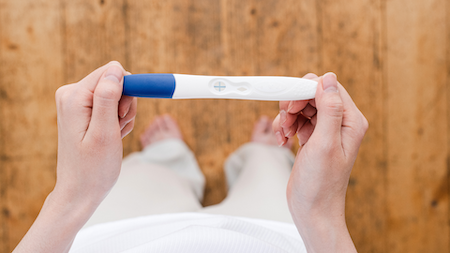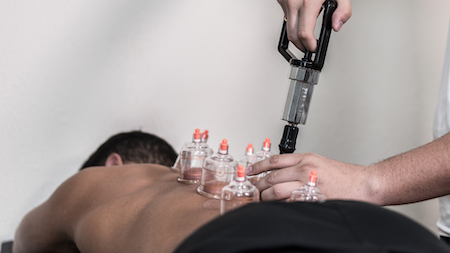Acupuncture for Fertility – How does it work? What to expect?

When trying to conceive, you want to do everything in your power to increase your chances of pregnancy. Generally, infertility affects about 12% of women. In the search for solutions for fertility issues, couples usually have multiple options. Acupuncture is only one of the many choices available for fertility treatments and therapies.
In general, acupuncture for fertility is quite tricky – there is a lot of information about it, and research is still ongoing. If you are curious about fertility acupuncture, here is everything you need to know about it – from what happens during your first visit to how often you should use it.
What Is Acupuncture?
Acupuncture is a traditional Chinese alternative medicine treatment, used for thousands of years. It works by promoting energy flow, or Qi. The Qi travels through our body in channels called meridians and helps us maintain good health. The process of Acupuncture involves inserting thin needles into specific points on your skin and stimulating those points to improve the flow of energy through your body.
The idea behind Acupuncture is that stimulating these points will help restore balance or homeostasis within your system. This can improve symptoms such as pain or fatigue. Some conditions that Acupuncture helps with include;
- Migraines
- Stress
- Anxiety
- Arthritis
- Addiction
- Infertility
The Link Between Acupuncture and Fertility
The use of Acupuncture for fertility treatment is increasing in popularity. Various reasons cause infertility, and acupuncture tackles some of the root causes.
For instance, Research showed that Acupuncture increases the chances of pregnancy in women struggling with polycystic ovarian syndrome and other infertility issues by improving the ovulation cycle.
Another study showed that acupuncture increases IVF and ICSI success rates. After acupuncture treatment was done 25 minutes before and after IVF treatment, there was a 15% increase in conception. Pregnancy success for patients who undergo a blastocyst transfer is also partly due to acupuncture.
Acupuncture can also improve overall health by strengthening the immune system and improving circulation throughout the body. Hence, it reverses stress-induced infertility by relaxing your mind, body and spirit so that you can conceive naturally.
How Does Acupuncture Work?
During a session, the practitioner inserts needles at points along energy pathways called meridians. These meridians are part of the body’s nervous system. When the needle is in, it stimulates certain nerves that carry electrical signals from one part of the body to another. This stimulation helps reduce pain and increase blood flow in nearby tissues.
After inserting the needles, the acupuncturist may gently twist them to help stabilize them. Then, the needles are left to work for 10 to 20 minutes. Also, Acupuncture can be done using either heat (moxibustion) treatment or an electric current that stimulates the needles (Electroacupuncture). The entire acupuncture session lasts between 30 minutes to an hour.
What To Expect from Acupuncture Treatments for Fertility
Acupuncture for fertility is a great option if you want to conceive naturally and don’t want to use drugs. The treatment involves inserting thin needles into specific points on the body, which can help with ovulation and improve your chances of getting pregnant.
You will be asked about your symptoms, health history, and lifestyle at your first visit to the acupuncturist. The acupuncturist will also ask questions about your diet, exercise habits, stress levels, sleeping patterns and other factors that may affect your fertility.
Once this information is complete, the acupuncturist will examine your tongue and pulse to determine the areas of your body that are out of balance.
The acupuncturist will then place very fine needles at points along the specific meridians to restore balance to the body.
Side effects and Risks associated with the treatment
There are no major side effects with acupuncture treatments for fertility. There are also no contraindications to the treatment of infertility with Acupuncture. The only risks that have been documented include the following:
- Bleeding at the needle sites
- Infection from an unhygienic procedure and unsterilized needles
- People with underlying medical conditions (Menorrhagia, Thrombocytopenia, and Coagulopathy)
Takeaway
The root causes of infertility differ from one patient to the next. When you’re struggling to get pregnant, and you feel like you lost all hope, it’s good to know that there are things that you can try to bring the chances of pregnancy up.
Acupuncture can help with this by rebalancing your system and reducing stress. And while they are no guarantee for everyone, there are some promising results. Ensure you have the procedure done by a licensed practitioner, research the potential risks before going into treatment, and have realistic expectations about the treatment.


Leave a Reply
You must be logged in to post a comment.